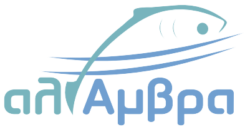Sustainable development
Fishing activities worldwide are approaching or exceeding the limits of sustainable exploitation. Simultaneously, global consumption of fish as a food source has doubled in recent decades, leading to a corresponding increase in aquaculture and its significance in the fish and seafood supply chain. Therefore, it is imperative to employ responsible aquaculture methods that respect and protect our seas. Only through sustainable fishing and responsible consumption of fish can we safeguard the oceans, the life they support, and the invaluable marine resources within.
One of the key challenges facing the current and anticipated expansion of aquaculture, both on land and in the sea, is environmental sustainability, particularly in relation to protected areas. Various aquaculture systems can have distinct impacts on the natural environment, including habitat loss or alteration, disturbance and displacement of species, and changes in local biodiversity. The negative effects of aquaculture on fish populations, marine ecosystems, water quality, and society can be significantly mitigated when responsible practices are implemented.
To achieve this goal:
Both the fishing and processing activities of fish farming units operating in the Ambracian Gulf area adhere to specialized and statutory environmental frameworks and regulations. These standards are established by the Ministries of Rural Development & Food and Environment & Energy and consistently align with the stringent specifications set forth by the European Union. Specifically, they adhere to the guidelines outlined in the document entitled “Aquaculture and Natura 2000” (ISBN: 978-92-79-93527-5, doi:10.2779/227, KH-03-18-288-EL-N). This guidance document serves the purpose of facilitating the comprehension and implementation of EU legislation concerning the Natura 2000 network in relation to aquaculture activities. It also aims to enhance awareness of the conservation objectives of these sites and promote best practices that demonstrate the compatibility of nature protection provisions with sustainable aquaculture development.
